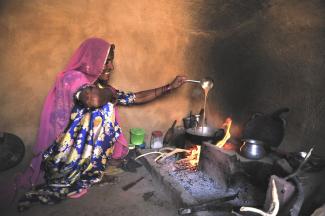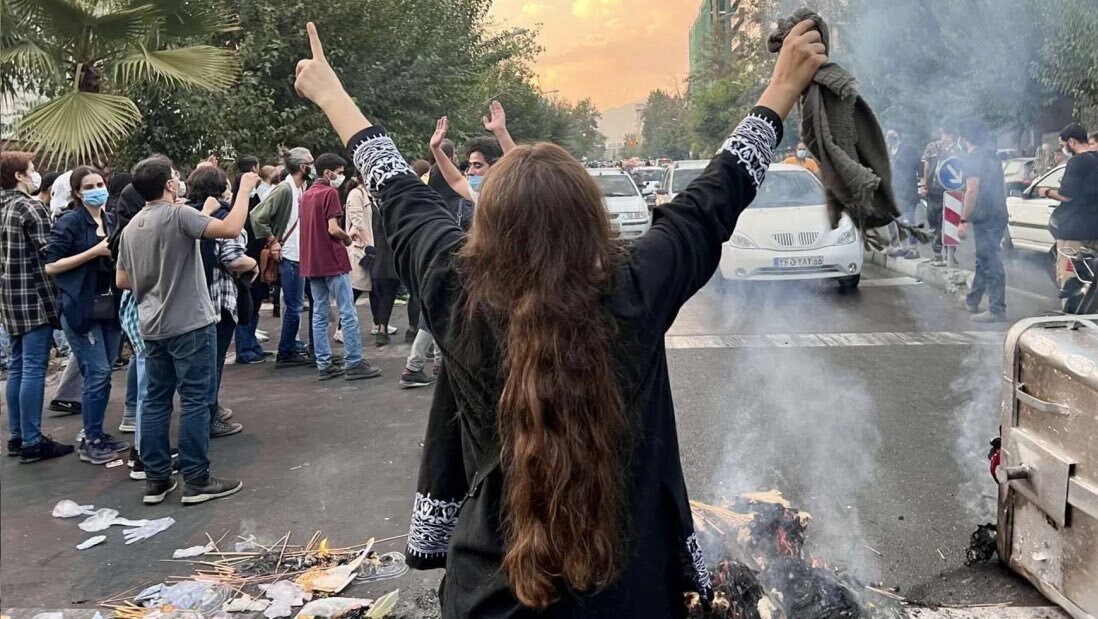Indoor air pollution
Clearing the air

Considering the many unknowns surrounding the Covid-19 pandemic, it’s worth noting that at least one factor is indisputable: having a respiratory disease increases one’s vulnerability to the virus.
Respiratory disease is clearly linked to air pollution. So it follows that air pollution increases the risks associated with the Coronavirus. In the USA, Italy and Britain, researchers have shown that exposure to particulate matter increases people’s Covid-19 infection rates and mortality.
However bad air pollution may be in the US, Italy or the UK, it is far worse in cities in much of the developing world. Moreover, the health hazards from indoor air pollution may be even greater than those from outdoor pollution. The World Health Organization (WHO) warns that it is indeed the greatest health risk many women face. Traditional cooking with biomass fuels – usually firewood or cow dung – often leads to life-threatening levels of indoor pollution. Things are especially bad in rural areas.
In India alone, indoor pollution from cooking with biomass causes about half a million deaths per year. Things might be better if people knew how harmful indoor air pollution can be.
In 2016, the Indian government launched a large programme to cover the upfront costs of access to liquefied petroleum gas (LPG) as a clean cooking fuel. Over 80 million households adopted the new technology, but many still use traditional biomass for most of their cooking nonetheless. Apart from unawareness of health risks, main reasons are the high price of cylinder refills (the equivalent of about $ 6.5 for a six-week supply for a family of five) and supply bottlenecks. Moreover, people mention security concerns and say the food tastes different.
The good news is that once rural residents know how harmful traditional fuels are, they change their behaviour. In an experimental study we carried out in the Indian state of Rajasthan, we found that many of the households that received information on health hazards related to traditional fuels started using LPG much more frequently. After awareness raising, about 30 % of the households doubled their LPG consumption during the weeks our research observed. That strong reaction was not a surprise. Among the control group, which was not given information, only 13 % were aware of major health issues involved. Most knew, of course, that cooking with cow dung and firewood temporarily irritates the throat and the eyes, but they had no idea of long-term consequences.
Apparently, the communications related to the LPG programme were not clear enough. They referred to LPG as a “clean fuel”, but that reference could be understood as a remedy for the blackened kitchen walls. The marketing campaign did not address serious health issues directly, but highlighted the opportunity to get something that might otherwise be out of reach.
That error should be corrected fast. In view of Covid-19, the Indian government decided to include free LPG cylinders in its Corona support programme for the poor. This is a good opportunity to emphasise the link between pollution, respiratory health and Covid-19.
Only if people know about the risks posed by traditional fuels are they empowered to make conscious choices within their limited budgets. Having that knowledge can also help people to make rational fuel choices in future, once the Covid-19 emergency has passed.
Link
Zahno, M., Michaelowa, K., Dasgupta, P., and Sachdeva, I., 2020: Health awareness and the transition towards clean cooking fuels: Evidence from Rajasthan. PLoS ONE 15(4): e0231931.
https://journals.plos.org/plosone/article?id=10.1371/journal.pone.0231931
Katharina Michaelowa is a professor of political economy and development at the University of Zurich and at the Centre for Comparative and International Studies.
Martina Zahno is a PhD candidate in political economy and development at the University of Zurich.
martina.zahno@pw.uzh.ch












